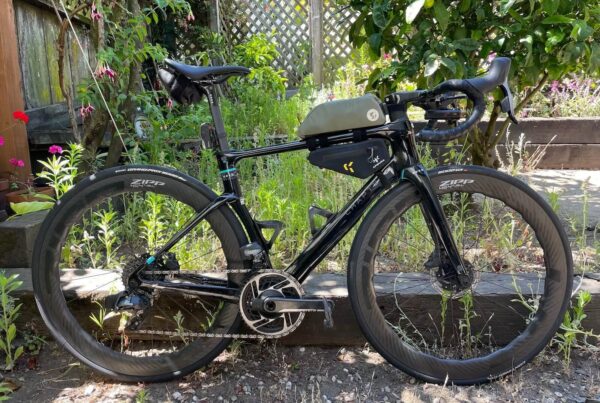There’s no such thing as a cycling license–but you should carry ID on rides. Here’s why.
By Bob Mionske
Here’s a conundrum: if you don’t need a license to ride a bike, do you need to be able to show ID when a police officer asks for it? In most states, the answer is no. But depending on where you live, you may be required to produce ID if you are stopped for a traffic violation.
Confused? You’re not alone. Here’s the reasoning behind this apparent contradiction: As a user of public roads, you are subject to traffic laws. And if you break a law, you can be ticketed. That’s the price of having a right to the road.
If an officer stops you, he is permitted by law to ask you to identify yourself if reasonable suspicion exists that you have violated a law, whether he intends to write a ticket or not. Often, all you are required to do in these situations is provide your name and address. But in some states, the law allows the officer to require you to provide proof of your identity. In California, if an officer sees a violation (or has a reasonable belief one has occurred) and stops you, he may require you to show proof of your identity. If he does so, you are required to produce a driver’s license or its functional equivalent–a government-issued ID card such as a military identification or a passport. This means your student or work ID card, your credit card and your frequent-flier card would not suffice.
What if you have only a student ID card? Under California law, the officer has the discretion to accept it, but if he or she doesn’t–and you can’t produce adequate ID–the officer can choose to take you into custody. This means in California, Colorado and perhaps a few more states, you could run afoul of the law if you don’t ride with a driver’s license or another government-issued ID. It sounds silly, but failing to have one could cause bigger problems than you would normally have from just, say, running a stop sign.
State laws vary, and it’s a good idea to know the law wherever you are riding. But the bottom line is that it will probably make sense to go beyond what the law requires. This means that you should always ride with some form of identification. A simple wristband ID, such as the one made by Road ID, will help emergency responders identify you if you are injured and unable to speak. And in many states, this may also serve as proof of ID.
Research and drafting provided by Rick Bernardi, JD.
This article, Identity Crisis, originally appeared on Bicycling on December 30, 2010.



